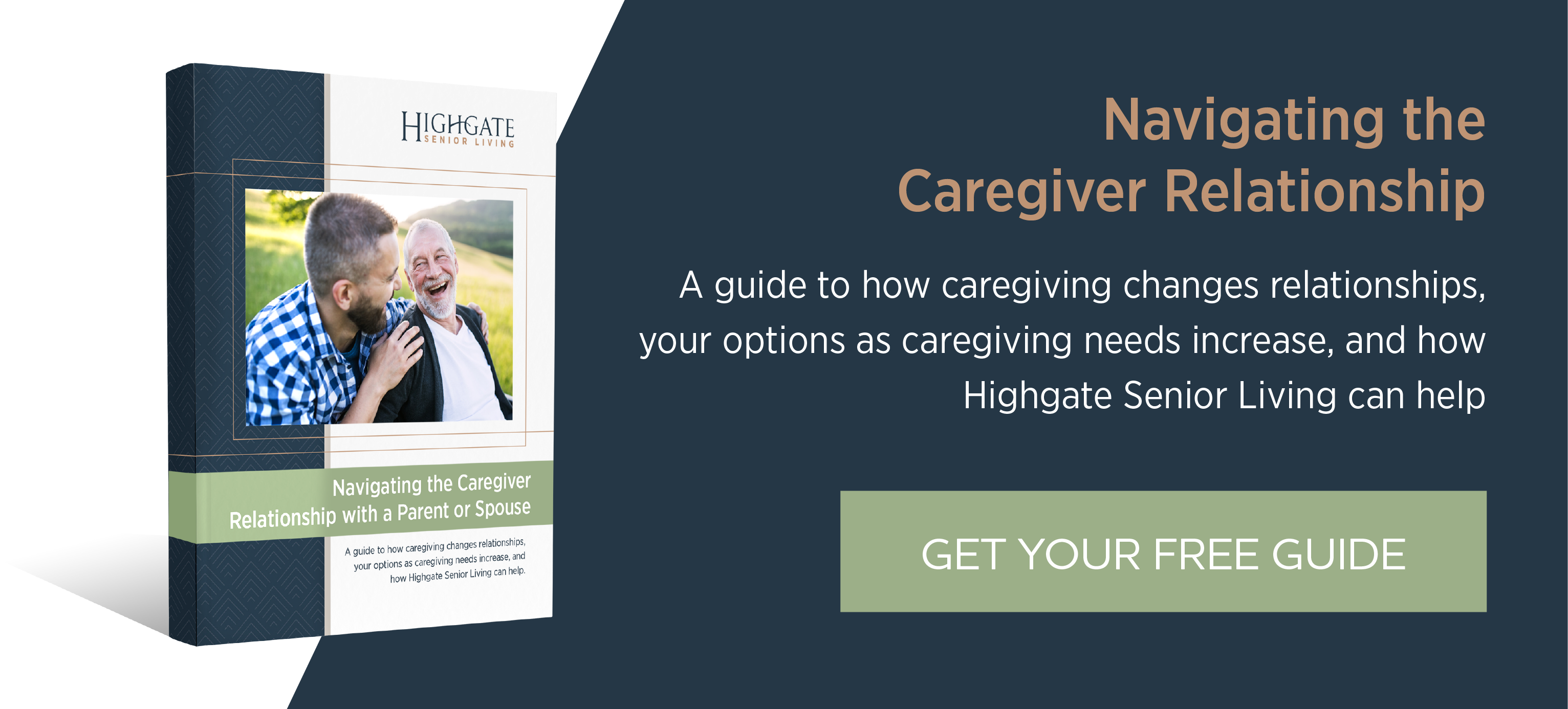
Ambiguous loss is the feeling you get when someone is there physically, but not there emotionally or psychologically at the same time. If you’re a caregiver experiencing ambiguous loss, it can make caregiving an emotional rollercoaster. Here are some tips for how to cope and how to help your loved one live their best life.
Understanding Ambiguous Loss
The term “ambiguous loss” dates back to the early 1970s, when professor and family therapist Pauline Boss noticed that family members could be psychologically absent while still physically present — there but not there. Loss of physical contact with family because of immigration or the pilots missing in action in Vietnam are examples of ambiguous loss.
Another type of ambiguous loss occurs when there is psychological absence with physical presence — such as family members of someone who has dementia or a loved one who is changing because of aging.
Unlike ordinary loss, ambiguous loss offers no verification of death nor certainty that the person will come back or return to the way they used to be. It’s hard to imagine a more terrible loss than to watch someone you love slip away right in front of your eyes.
If you’re one of the millions of adults sandwiched between the children you are raising and the elderly parents you are caring for, then you’re experiencing even more loss.
“Tending both to younger and older generations — and perhaps also to a marriage — such caregivers find themselves pulled from all sides, squeezed for time, and struggling with divided loyalties — a recipe for high anxiety and extreme stress,” Boss writes in her most recent book, Loving Someone Who Has Dementia: How to Find Hope While Coping With Stress and Grief.
Grieving While Caregiving
Allowing yourself the time to process your feelings and emotions while caring for a loved one with memory loss is often easier said than done. Most caregivers focus on the needs of the one they are caring for at the expense of their own need to have time to process how they feel.
If you don’t allow yourself the time to grieve, emotions can surface as something else. Doubt, confusion, helplessness, and hopelessness set in and you can feel anxious and depressed. Fortunately, there are ways to cope with ambiguous loss.
How to Cope with Grief
It’s normal to want to avoid the sadness that comes with grief, but allowing yourself to feel it promotes healing. Here are some tips to help:
1. Name It
Once you begin to accept that aging is a prime example of ambiguous loss and that the culprit is not you or your loved one, you are better able to begin coping.
“The goal,” Boss writes in Loving Someone Who Has Dementia, “is to help you increase your resiliency — your ability to withstand and grow even stronger despite the stress and grief.”
2. Embrace ‘Both-And’ Thinking
To help shift your perceptions, Boss suggests ‘both-and’ thinking. Some examples from her book include:
- “She is both gone and still here.”
- “I take care of both him and myself.”
- “I am both a caregiver and a person with my own needs.”
- “I both wish it was over and wish that my loved one keeps on living.”
- “I am both sad about my lost hopes and dreams and happy about some new hopes and dreams.”
3. Connect with Your Community
Caring for yourself is one of the most important — and one of the most often forgotten — things you can do as a caregiver. As you struggle with the ambiguous loss of a loved one, make sure you’re cultivating relationships with people who are physically and psychologically present.
Consider joining a support group — online or in person — where you can be surrounded by others in the same position, sharing caregiving tips, picking some up from others, and realizing that what you’re going through is normal and that you’re not the only one with these feelings — positive or negative.
There needs to be a predictable, unambiguous, place where you can turn to for advice and encouragement when you feel alone, overwhelmed, or frustrated.
If you are struggling to find the time to collect your thoughts, practice good self-care, or connect with a supportive community, many assisted living communities offer respite care stays.
Finding Your Silver Lining
While it is important to allow yourself to grieve, it is also equally important to spend quality time with your loved one as a caregiver. Here are some tips for helping your loved one live their best life:
1. Reminisce
Reminiscing has several benefits. It can help your loved one create new neurological pathways, it can alleviate frustration or depression, and it can help you as a caregiver remember some of your fondest memories. Memory boxes or memory books can help spark conversation with your loved one and some aroma therapy scents can promote mental focus to help your loved one recall memories as well.
2. Sing Together
Music not only enhances mood, but also can help your loved one recall fond memories. On days where it might be difficult for your loved one to reminisce, try turning on some of your loved one’s favorite music and enjoy singing along together.
3. Make New Memories
While it can be hard to see your loved one forget the abilities that they once had or the memories they no longer can recall, each day as a caregiver provides you the opportunity to make new memories. Try making a new bread recipe and allowing your loved one to knead the dough or enjoy a scenic drive while listening to music with your loved one. Balancing grief with new memories can help balance your emotions out and allow you to cherish the time you have with them each day.
For more tips on how to cope with the ambiguity of caregiving, grieving the loss of a loved one, and tips for caregiving, download our eBook Navigating the Caregiver Relationship with a Parent or Spouse.






